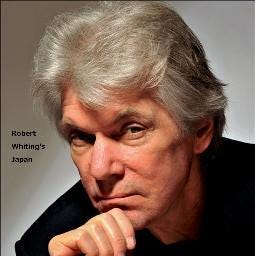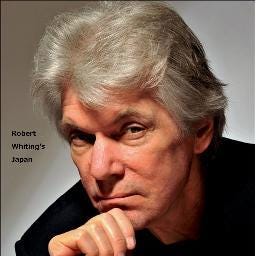TOKYO — Thanks for your cards and letters. To answer your queries on the subject of my recent health scare, which put me out of commission for around 10 days, I suffered a stroke, or a cerebral infarction, as the doctors say.
I never would have known I’d had a stroke if it hadn’t been for my wife.
It happened on a Friday, April 19, this year, 2024. I’d been sleepy all day. Groggy almost. All I wanted to do was sack out. I couldn’t even watch baseball on TV. But my wife saw there was something wrong. Machiko is her name. She is a retired UNCHR office with a 25-year career in refugee camps around the world, including Mogadishu, Karachi and Tan Jun Penang, Indonesia.
She button-holed me on around 8 o’clock that night. There’s something wrong with your face,” she said, ‘It’s frozen, twisted. I think you should go to the hospital.’ ”
All I wanted to do was sleep. But she kept nagging me. So to make her stop I got up and looked in the mirror. A little twisted. Maybe she’s right. “I’ll go in the morning,” I said.
“No,” she said, “there’s something seriously wrong. You have to go now.”
We went back and forth and so I finally capitulated.
So we called a cab and went to St. Luke’s Hospital in Central Tokyo to the Emergency Ward. They put me on a stretcher and wheeled me to the CT scan and MRI rooms. Half an hour later the doctor came up with the results. “See this white spot on the right side of your brain?” He said, “You’ve had a stroke. It’s good you came in when you did. This could have been a lot worse if you had waited. You might have died.”
It was amazing. I’d always thought a stroke was like an electric shock, something similar to being electrocuted in the electric chair. But I hadn’t felt a thing. Silent but deadly.
At St. Luke’s they treated me with medicine, including 24-hour IV and blood thinners, along with three meals a day. And they made me to use a cane for walks downstairs to the Starbucks concession in the lobby, accompanied always by someone on the staff.
A week later I was released from the hospital, with instructions to avoid alcohol and sugar — and most importantly, stress. The first thing I did when I came home was to write my weekly column for Yukan Fuji (the one about Meiji Jingu, available on ZakZak), which I managed to do without any difficulty.
But the message I would like to get across today is you can survive a stroke. It doesn’t always turn out for the worst. I did not lose too many brain cells.
More importantly, the Big Moral of this story is: Listen to Your Wife.
While at St. Luke’s, I lay in bed and watched TV all day (sports, baseball whenever possible, which was not very often in the daytime programming schedule) but it was amazing how often the name Shohei Ohtani was mentioned even on daytime TV —variety talk shows, even cooking shows — and how many commercials he appeared in. Interestingly, when word got around that I was an American sports journalist, the doctors, nurses and rehab therapists would come in my room and everyone wanted to know what I thought of Ohtani and the gambling scandal.
I replied that I didn’t believe Ohtani was a gambler and was just a victim in the whole affair. Would this affect his standing in the U.S. they wanted to know. I said I didn’t think so. Big smiles ensued.
No one asked me about Kyojin. How times have changed.
Summing up, St. Luke’s is a great hospital, dating back to 1902, when it was founded as a medical mission by the American Episcopal Church. It’s where you want to be if you are really sick. This was my second long stay there after a cervical laminectomy to cure spinal stenosis (an operation invented by a St. Luke’s surgeon). The staff there are really professional. They know what they are doing.
Thank you St. Luke’s.
END





Glad to hear you’re doing ok. Odaiji ni!
Glad you are better! I also learned to listen to my wife… live long and prosper!🖖🙌🏼🤙🏼